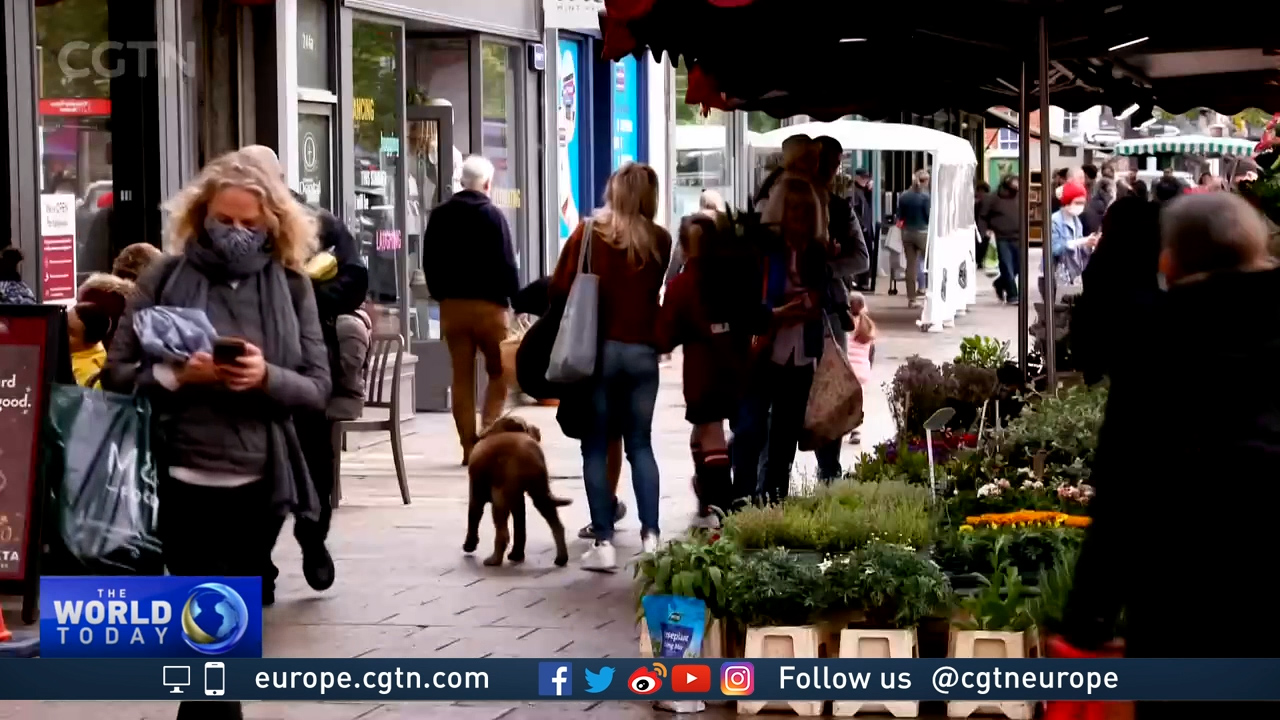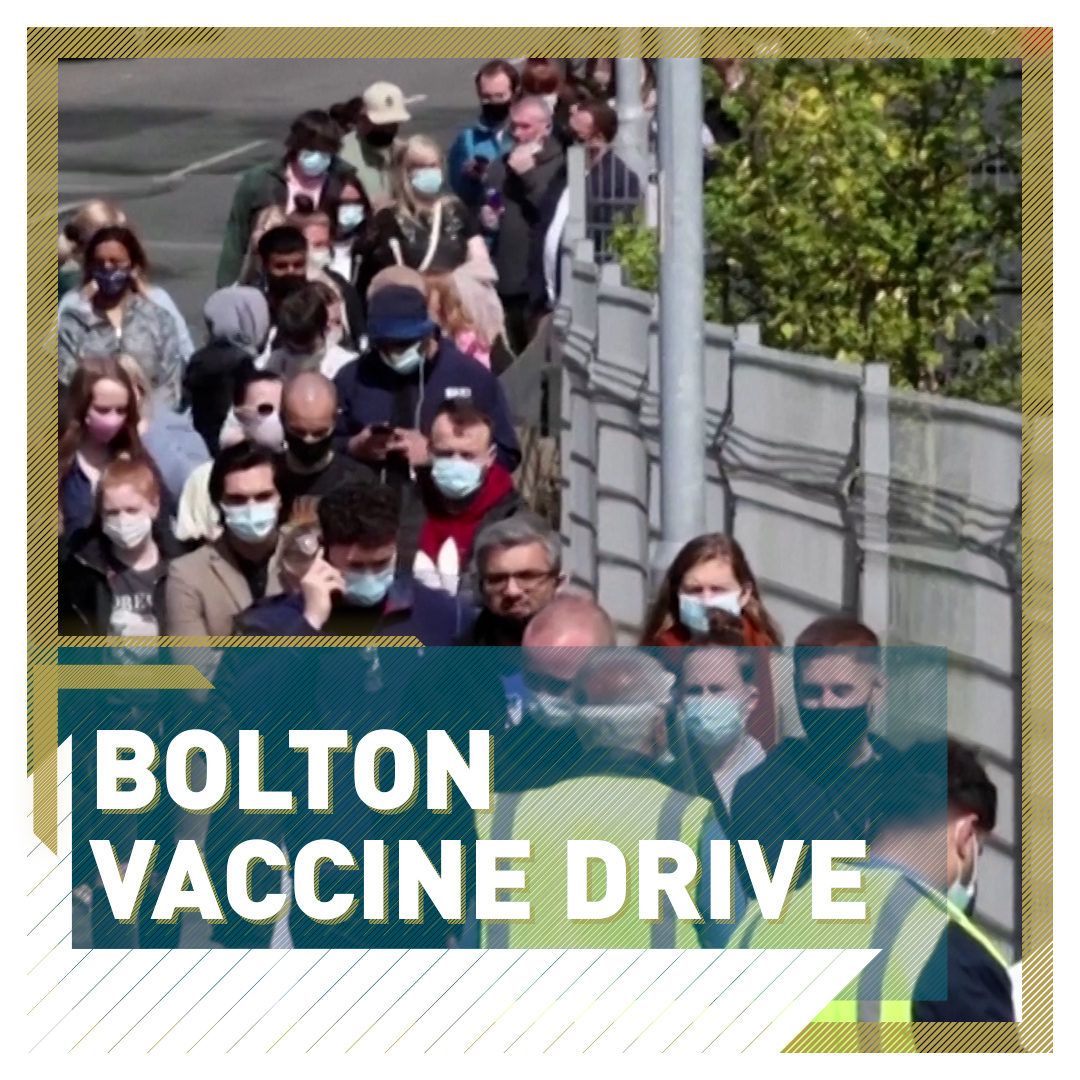02:39

Monday is shaping up to be a significant day in most parts of Britain, as bars, cafes and restaurants will be allowed to serve customers inside their premises.
After a long winter lockdown, up to six people from two different households will be allowed to socialize indoors. Up to 30 people in England can meet and mix outdoors, while Northern Ireland will review its measures next week.
Despite a colder Sunday than average in west London in May, customers were queuing up outside Chateau Dessert patisserie. Anette Megyaszai is the owner and founder of the business, and she is just one of many business owners who can't wait for COVID-19 rules to be relaxed.
"It's a massive lifeline," she said.
"It's six months of struggle and we're finally are able to serve customers inside, maximizing the space, allocating good safe areas - we've got two floors to fill, and I can't wait to fill them."
Confidence is returning and so will customers - especially as more than 55 million people in the UK have received either one or two vaccine inoculations so far.
But it has been a tough year. A tenth of British restaurants won't be reopening according to one survey, which says thousands of establishments have closed, with almost 10 percent fewer restaurants in operation than before the pandemic began.
Even highly regarded restaurants with Michelin stars awarded to them, have had to adapt and often borrow to keep their businesses viable.
Clare Smyth, who is a Michelin-recognized chef, said: "People have borrowed a lot of money. That debt needs to be serviced. So, as we're moving forward, landlords are going to want rent. There's a lot of things going to happen in the next six months to a year and I think that's probably the most challenging time for businesses."
00:54

While Wales, Scotland and Northern Ireland have followed slightly different COVID-19 lockdown regulations, the UK government, which sets out the policy in England, is keen to remove most COVID-19 restrictions in just five weeks.
But it is also facing criticism for not responding sooner to the variant first found in India, which is spreading in parts of the UK.
The variant is believed to be possibly 50 percent more transmissible. There is anxiety about how resistant the vaccines will prove against this strain of the virus.
Should it spread, it could be difficult for the government to reintroduce social distancing rules after a major re-opening this month.
On Sunday's TV news shows Matt Hancock, UK Health Secretary, conceded ministers were worried.
"New variants are one of the biggest risks to this opening because of the speed of transmission of this one. It can really spread like wildfire amongst the unvaccinated groups," he said.
"Hence, we need to get as many people vaccinated as possible, particularly in those who are most vulnerable to ending up in hospital."

England, Northern Ireland, Scotland and Wales are easing COVID-19 restrictions in different ways and have their own policies. /CFP
England, Northern Ireland, Scotland and Wales are easing COVID-19 restrictions in different ways and have their own policies. /CFP
His boss, Prime Minister Boris Johnson, is defending his decision not to ban travel from India earlier than April 23.
Despite India reporting a surge in cases more than two weeks earlier. The B.1.617.2 variant is certainly worrying health experts. The British Medical Association is the latest to ask how wise is to lift COVID-19 restrictions while there is so much uncertainty about the variant in Britain.
Cafe and restaurant owners like Anette, though, are keen to reopen and hope the virus will recede, so their profits can return.
00:32

"We are still possibly looking at starting to pay business rates from June onwards, maybe at a reduced rate," she said.
"The furlough scheme is coming to an end in the summer, so whatever savings we've had, financially over the last year, we're depleted. Having to stand on your own from June onwards, or July onwards, is a scary thing."
As most regions relax COVID-19 rules, surge testing is taking place in several towns and municipalities in England, where virus variants have been detected - including Bolton, Blackburn and several London boroughs, as well as Sefton, Worcestershire, and Nottingham.

